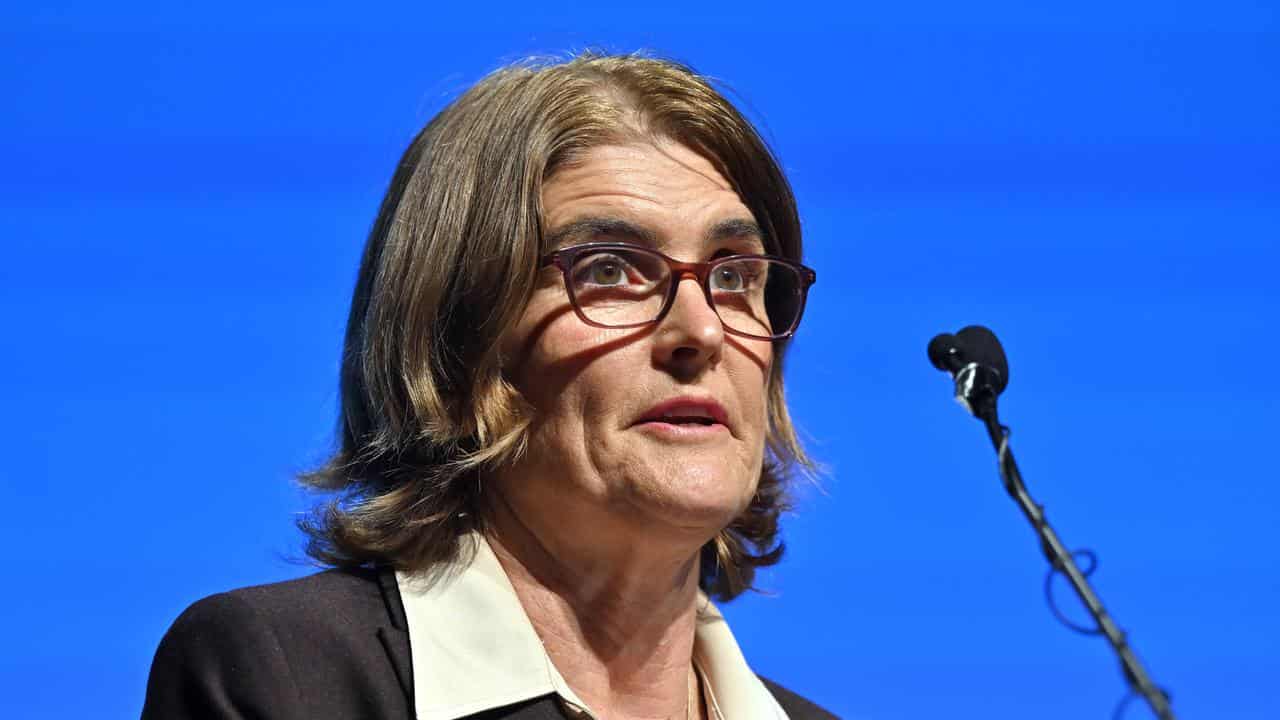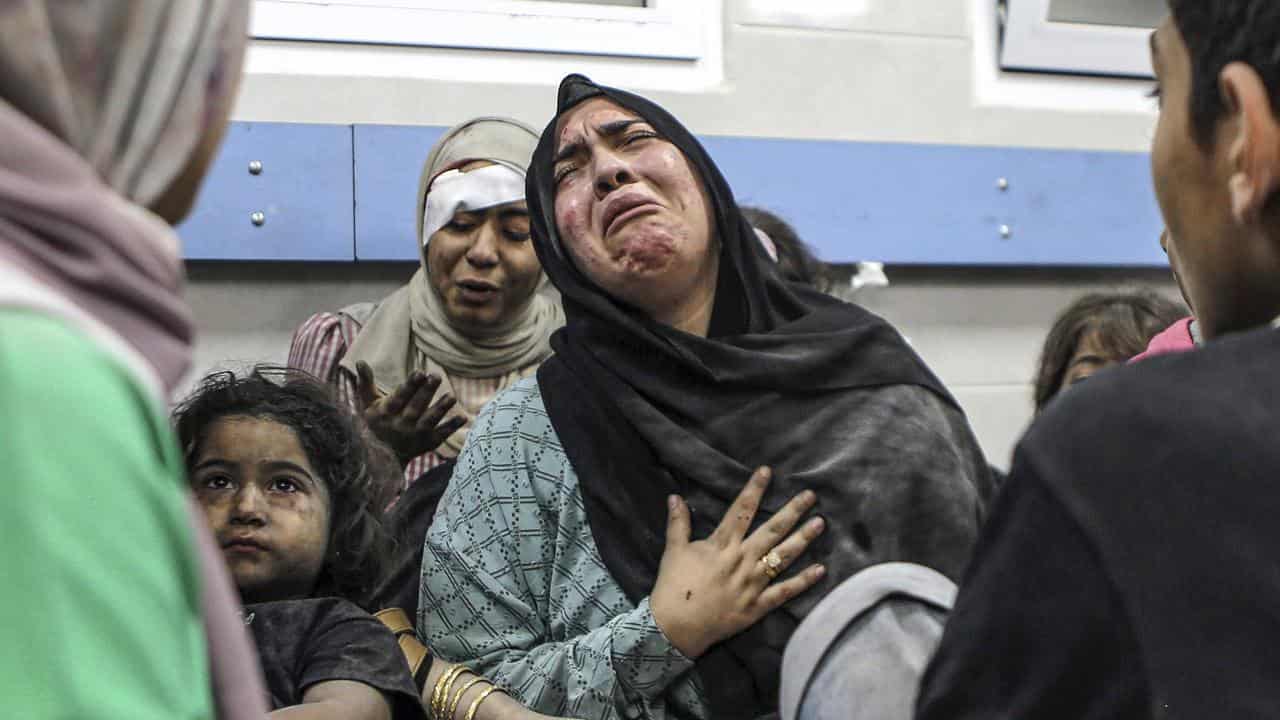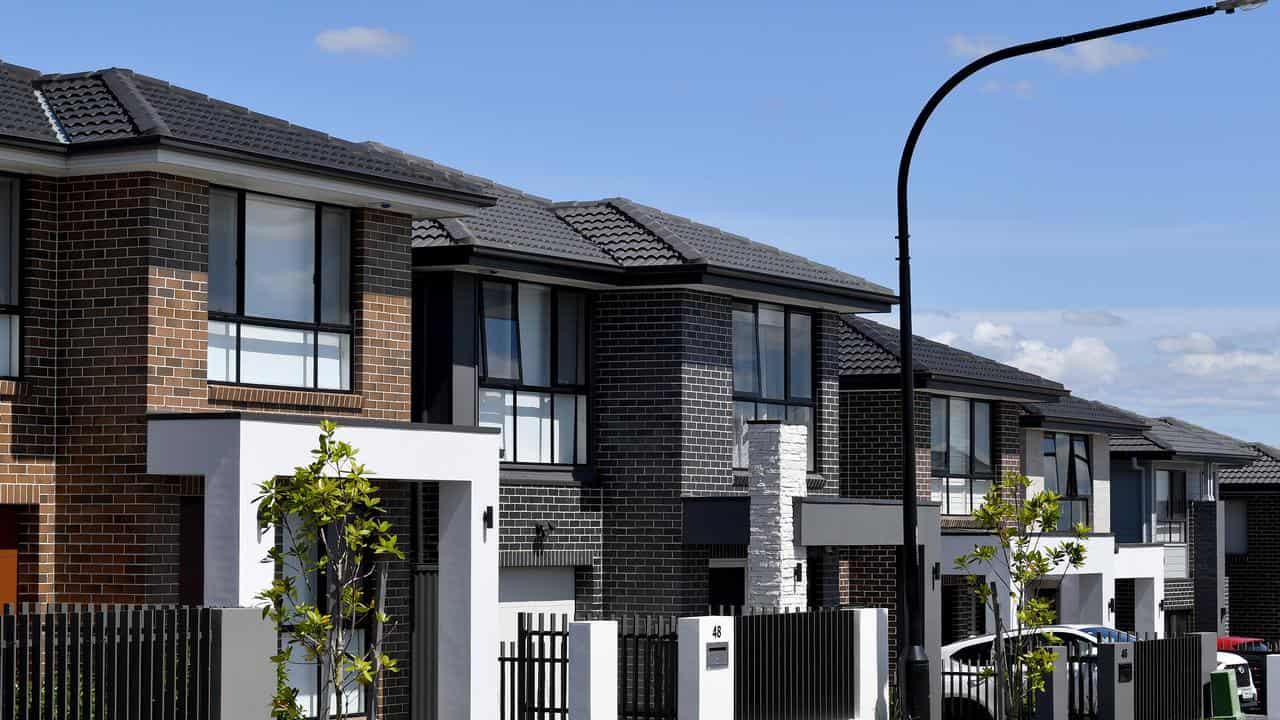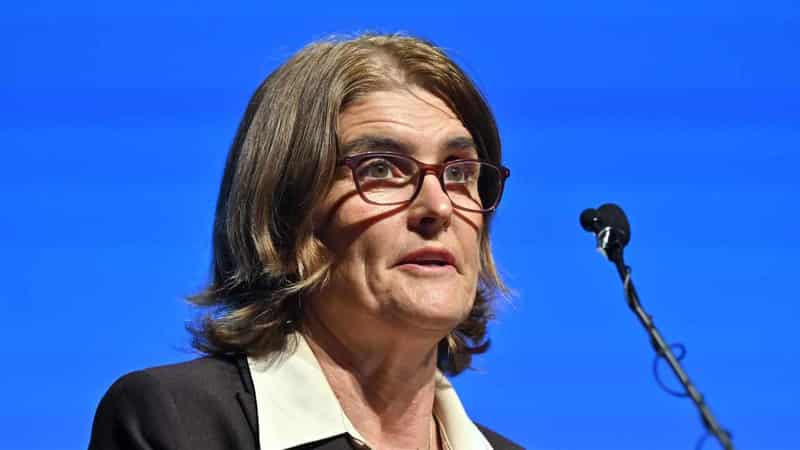
The head of the Reserve Bank of Australia is alert to the conflict in the Middle East adding to other economic shocks already pushing up the cost of living.
In her first public appearance as governor of Australia’s central bank, Michele Bullock said the bank was concerned about the potential inflation implications.
“Typically, when we think about shocks to supply that increased prices, you think, well, that's probably ‘OK, it'll wash out’,” she told the Australian Financial Security Authority annual summit in Sydney on Wednesday.
“But the problem is that we've just got shock, after shock, after shock.
“And the more that keeps inflation elevated, even if it's from supply shocks, the more people adjust their thinking, and the more people adjust their inflation expectations, the more entrenched inflation is likely to become.”
Ms Bullock said it was unclear how the developing situation in the Middle East, sparked by the attack by Islamist group Hamas on Israel, would affect inflation but it had initially pushed up oil prices, which were already elevated and flowing through to more expensive petrol.

She also said ongoing conflict and instability could slow growth across the globe, which would also be challenging.
“So it’s really a bit of a balancing act.”
The central bank has been on hold for four months in a row as it monitors the impact of its 12 interest rate hikes already delivered.
In the minutes from the most recent board meeting, members said inflation was coming down but warned of risks threatening its plan for bringing prices back within the target band by late 2025.
Speaking on Wednesday, Ms Bullock said Australia was still on its narrow path to beat inflation while keeping the economy growing and preserving strength in the jobs markets.
The challenge was bringing inflation down quickly enough to avoid inflation expectations becoming de-anchored.
The minutes flagged slow progress on services inflation and higher petrol prices as risks to the inflation outlook, as well as the recovering housing market.
Ms Bullock was surprised the housing market had rebounded while interest rates were still high.
She said there were several factors at play, including the rising cost of construction nudging more people to buy an existing home rather than build one.
The hawkish tone of the October board meeting minutes was observed by several economists though many still believe the central bank has reached its peak.

But many say a worrying set of inflation and jobs data between now and the November cash rate meeting could be enough to spur further action.
The Deloitte Access Economics team said inflation was following a downward trend and any further interest rate hikes were likely to increase the chance of recession.
"And despite some upward pressure on inflation from higher oil prices and the weaker Australian dollar, the RBA’s current tightening cycle should be at an end," the economists wrote in a report.
University of New South Wales Business School economics professor Richard Holden said the RBA should consider taking out more insurance against cascading shocks and tighten rates further.
Professor Holden said the RBA had been slow to start lifting interest rates compared to its overseas peers and the cash rate - currently at 4.10 per cent - was still much lower than in other countries.
"Which raises the question of, if we can achieve a soft landing with lower terminal interest rates and starting slower, what's so special about Australia that allows that to occur?"









